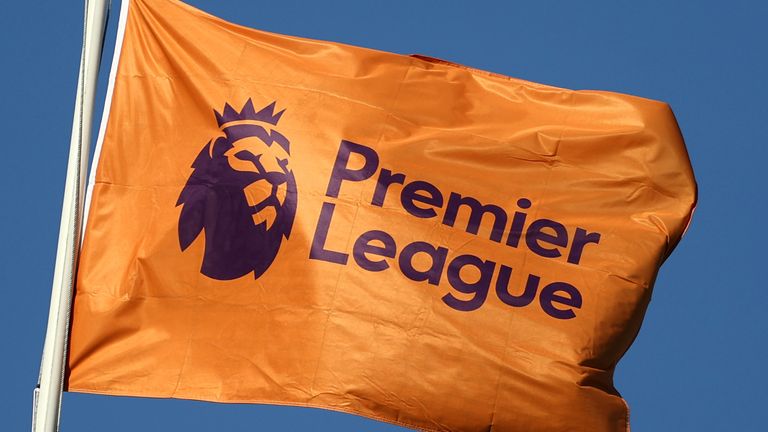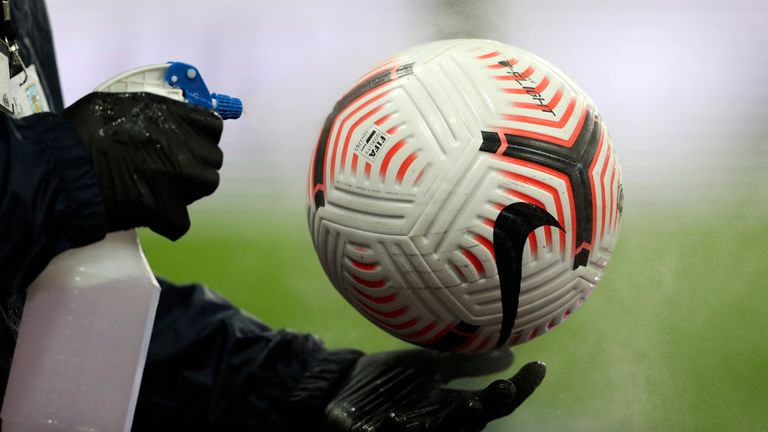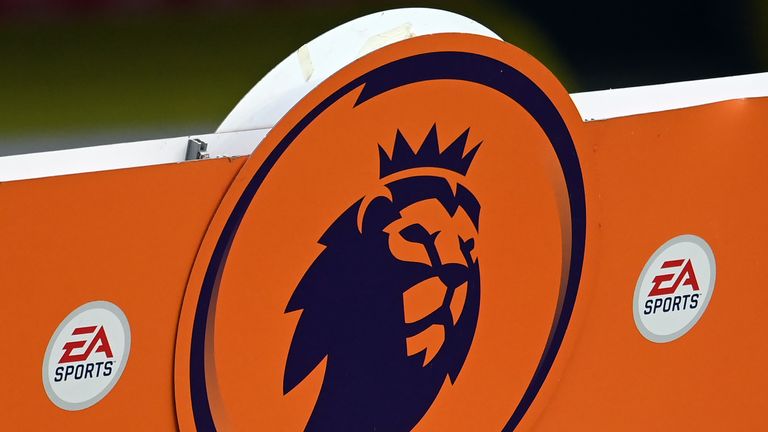Premier League clubs report first fall in revenue amid coronavirus impact
The lack of matchday spectators coupled with a rebate and delay affecting some broadcast income saw revenue fall around 13 per cent, although the 20 top-flight clubs still brought in a combined £4.5billion
Tuesday 15 June 2021 12:13, UK
Coronavirus restrictions saw Premier League clubs report a fall in revenue for the first time, according to new figures from finance company Deloitte for the 2019-20 season.
The lack of matchday spectators coupled with a rebate and delay affecting some broadcast income saw revenue fall around 13 per cent, although the 20 top-flight clubs still brought in a combined £4.5billion.
A cumulative pre-tax loss of almost £1bn was also the largest in Premier League history and almost five times the previous season's £200m figure as the true financial cost of the pandemic becomes clear.
Dan Jones of Deloitte's sports business group said: "The decrease in revenue in the 2019-20 season is, unsurprisingly, down to the global economic and social disruption caused by the Covid-19 pandemic and will continue to have a heavy impact on the 2020-21 season's financial results when available.
"The absence of fans, postponement of matches and rebates to broadcasters had a significant impact on the revenue clubs have been able to generate.
"The full financial impact of the pandemic on the Premier League will depend on the timing of the return of fans to stadia in significant numbers and the ability of clubs to maintain and develop their commercial relationships, in particular at a time when many other industries are suffering.
"Matchday operations are a cornerstone of a club's business model and fans' absence will be more fully reflected in the financial results of the 2020-21 financial year.
"Once fans are able to return in full, hopefully during the 2021/22 season, Premier League clubs have the potential to again return to record revenue levels."
The renewal of the league's broadcasting deals will contribute to that, but, in the meantime, player wages jumped to occupy 72 per cent of club revenue in 2019-20.
That was a consequence of the fall in income, as wages increased just three per cent in raw terms.
Deloitte's Tim Bridge said: "In this extraordinary year it is difficult to read too much into whether this marks a shift in clubs' approach to wage spending, or one-off elements such as the absence of end-of-season bonuses, which will have been deferred to the next financial year, or the impact of temporary wage cuts or deferrals.
"With wages always representing the largest cost for football clubs we will watch with interest in years to come to understand whether this financial shock will come to be seen as having caused a change in approach and greater control over wage expenditure."
What does this mean for the transfer window?
While Jones believes this all could add up to a quieter summer transfer window, he does believe one big deal might just be the catalyst for further moves.
The figures also revealed a new trend, with clubs in the top flight spending a bigger proportion of their revenues on wages than they ever have previously.
"I think we will see a relatively quieter summer, but of course what can always happen in the transfer market is you can get one or two big deals and it gets the cycle turning," Deloitte's Jones said.
"Most of the action will be at either end: big-name, big-money transfers at the top, a lot of frees and loans and so on going on at the bottom, and not a lot going on in the middle."
Jones added: "The wages have gone up by the smallest amount they have gone up in about 15 years.
"They are only up three per cent, but because the revenues have dropped, that little increase in wages - coupled with a big drop in revenues - means the clubs are spending a higher percentage of their revenue on wages than they ever have before. For every £100 coming into all the clubs, over £70 is going out on the wage bill."





